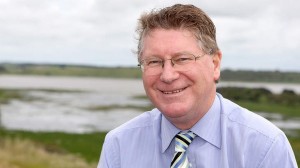New policy to protect multiculturalism in Victoria
 A set of measures to gauge the success of multiculturalism in Victoria will be introduced by the State Government under a new policy to protect cultural diversity.
A set of measures to gauge the success of multiculturalism in Victoria will be introduced by the State Government under a new policy to protect cultural diversity.
For the first time, the Government will monitor the performance of culturally diverse people in areas such as school completion, university attendance and membership of government boards and committees.
It will also monitor the views of Victorians on controversial issues such as multiculturalism and immigration.
Premier Denis Napthine this week launched the policy titled ‘Victoria’s Advantage – Unity, Diversity, Opportunity’ saying Victoria was an example to the nation and the world on the benefits of cultural diversity.
“With more than 26 per cent of Victorians born overseas, Victoria is already a leading example of the many ways in which cultural diversity enriches our society,” he said.
“This policy demonstrates the Victorian Coalition Government’s commitment to diversity, using clear indicators such as labour force participation and school retention to strengthen multicultural affairs and citizenship in our great state,” Dr Napthine said.
The new policy outlines a plan to support social cohesion and citizenship, while reducing instances of racial and religious discrimination.
It focuses on three major themes:
- Maximising the benefits of our diversity
- Citizenship, participation and social cohesion and
- Responsive and Accessible Services.
“A more comprehensive picture of Victoria’s progress in multicultural affairs and citizenship will better assist in identifying emerging trends and issues,” Dr Napthine said.
It will also monitor the rate of complaints made to human rights bodies on racial and religious vilification.
Retiring Multicultural Affairs Minister Nick Kotsiras, himself a first generation Greek migrant, said that the state’s cultural diversity was embraced as a source of pride.
“As a government and a community, it is vital that we commit ourselves to strengthen Victoria’s harmonious reputation for future generations,” he said.
The policy document said that collecting and reporting on culturally diverse indicators would help government and communities to better identify trends and emerging issues.
The indicators will include birthplace, language background and self-identification.
In the policy, the State Government commits to: “building understanding and respect by enabling communities to come together in events across Victoria; support cross-cultural and multifaith interactions and partnerships; build strong, sustainable community organisations; works with multicultural service providers and peak associations to better understand and respond to the needs of diverse communities; address specific complaints of discrimination and racial and religious vilification; and, gather data on the prevalence and experience of racism and discrimination”.
The policy recognises the economic benefits of migration, saying it “has brought valuable skills, business investment into Victoria, aiding in the creation of an innovative and dynamic workforce”.
Federation of Ethnic Communities’ Councils of Australia Joe Caputo said the new policy was a positive step.
“It shows that the State Government recognises the importance of cultural diversity and the benefits multiculturalism brings,” Mr Caputo said.












